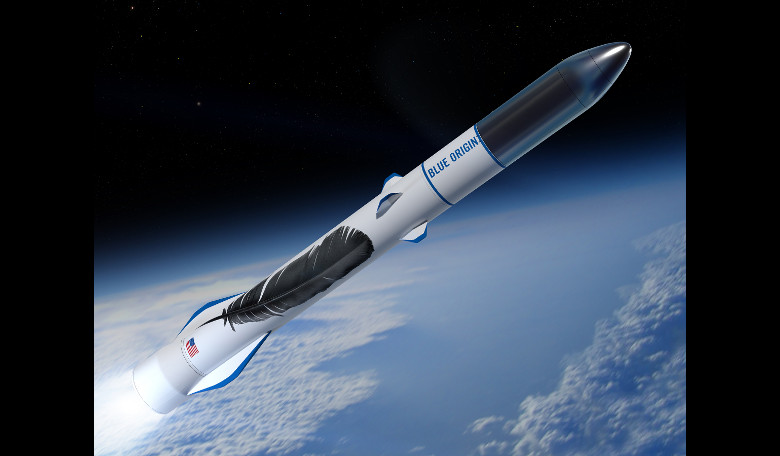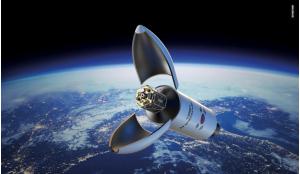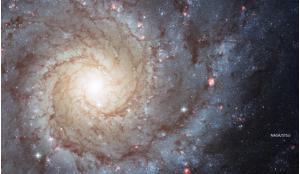Asian startup company mu Space Corp announced today at the 68th International Astronautical Congress (IAC) in Adelaide that it has entered into an agreement with Blue Origin to partner on a future launch of a geostationary satellite aboard the New Glenn orbital rocket. The launch is set to happen early in the next decade.
“We’ve decided to
go with Blue Origin because we’re impressed with the company’s
vision and engineering approach,” says mu Space CEO James
Yenbamroong.
Last September Blue Origin announced its plan to build New Glenn, an orbital launch
vehicle to carry people and payloads to low-Earth orbit destinations
and beyond. Named after the first American astronaut to orbit the
Earth, John Glenn, the launch vehicle is designed to be reusable
which enables lower cost access to space for Blue Origin’s
customers.
“We look forward to
launching mu Space on New Glenn to serve the people of Thailand and
to be a part of expanding mu Space’s imprint on the Asia Pacific
region,” says Robert Meyerson, Blue Origin’s President.
mu Space Corp is
working to support the growing demand in Asia-Pacific for broadband,
mobile, broadcasting and smart city services using space based
solutions.
According to its long
term plan, the company will launch its own geostationary orbit
satellite in 2021. It also has ambitions to become the first company
to offer space tourism in Asia.
“mu Space also shares
Blue Origin’s vision of developing space technologies that will
accelerate the adoption of innovative technologies,” adds
Yenbamroong . “We want to deliver equitable access to communication
services for all and improve quality of life on Earth.”
The agreement marks the
first-time Blue Origin has partnered with an Asian launch customer.
mu Space Corp was founded by entrepreneur and space enthusiast James Yenbamroong in Thailand and its focus is to develop
satellite communication and space commercial transportation
technologies for the Asia-Pacific region.











